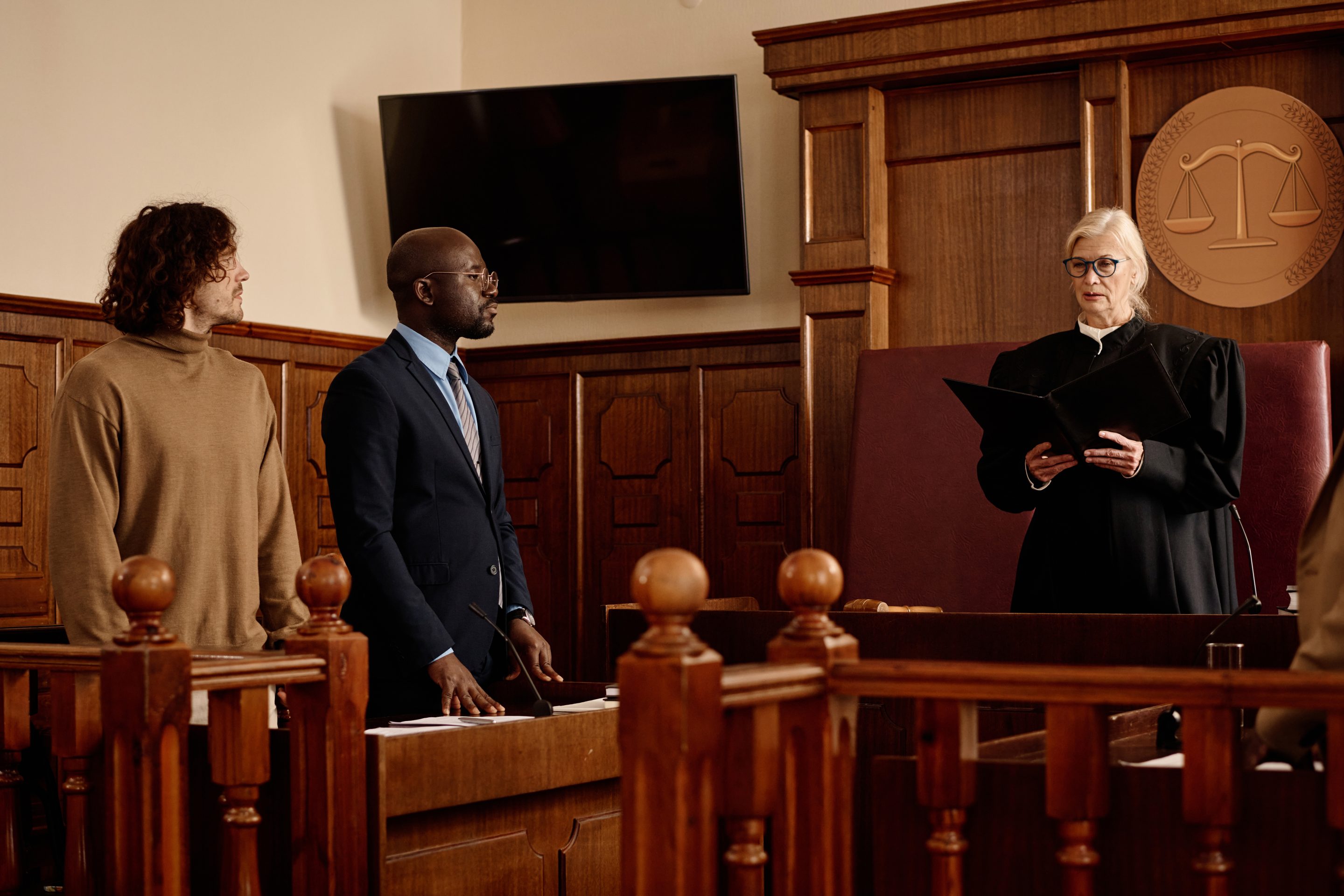How to Prepare for Personal Injury Trial in Texas
Getting ready to Prepare for personal injury trial in Texas can be intimidating and complex, but thorough preparation is the key to achieving a successful outcome. If you’ve been injured in an accident and have decided to pursue a lawsuit, your preparation will affect how your case is presented and perceived in court. Knowing what steps to take before entering the courtroom will give you confidence and increase your chances of securing the compensation you deserve.
This article will take you through every step of the trial process, including gathering evidence, preparing your testimony, working with your lawyer, and understanding courtroom etiquette. It will also answer five common questions about personal injury trials to help you navigate the complexities of Texas law.
Understanding the Personal Injury Trial Process in Texas

In Texas, trials are governed by the Texas Rules of Civil Procedure, and personal injury cases can be heard in either state district courts or county courts. The trial process typically includes several stages, which are as follows:
-
- Jury Selection (Voir Dire): Selecting a jury to hear the case. During this stage, attorneys from both sides question potential jurors to determine their suitability and impartiality.
- Opening Statements: After jury selection, both sides present their opening statements. This is where attorneys outline the facts of the case and the evidence they plan to present.
- Presentation of Evidence: The plaintiff’s attorney presents evidence, including witness testimony, documents, and expert opinions, to prove that the defendant’s negligence caused the injury. The defense will also present its evidence to dispute the claims.
- Witness Testimony and Cross-Examination: Witnesses, including the plaintiff and possibly medical experts, testify. Both sides can cross-examine each other’s witnesses.
- Closing Arguments: After all the evidence is presented, both sides make their closing arguments, summarizing their case and trying to persuade the jury.
- Jury Deliberation: The jury reviews the evidence and arguments and reaches a verdict.
- Verdict and Judgment: The jury decides on liability and, if applicable, the amount of compensation to be awarded. Sometimes, the judge may determine the verdict instead of a jury.
Now that we have a clear understanding of the Texas trial process let’s move on to the practical steps you should take when preparing for your personal injury trial.
Step-by-Step Preparation for a Personal Injury Trial in Texas
1. Build and Organize Your Evidence

To build a strong case, gather the following types of evidence:
-
- Medical Records: Include detailed documentation of your injuries, treatments, medical bills, and any prognosis for long-term recovery. These records should be presented in chronological order.
-
- Accident Reports: Police or accident reports that outline the details of the incident can be powerful pieces of evidence.
-
- Photographs and Videos: Pictures or videos of the accident scene, injuries, and property damage can help illustrate what happened.
-
- Witness Statements: Obtain statements from witnesses who can corroborate your events.
-
- Expert Testimony: Medical experts, accident reconstruction specialists, or economic experts may be called upon to testify about how the accident occurred and the impact of the injuries.
-
- Proof of Lost Wages: Document any wages or income lost due to your injury.
This evidence should be meticulously organized so your attorney can easily access it during the trial. Creating a timeline or outline of key events will help you stay on track during your testimony.
2. Collaborate Closely with Your Lawyer

-
- Case Strategy: Understand the overall strategy for presenting your case. Discuss the strengths and weaknesses of your claim and how the evidence will be used to support your arguments.
-
- Legal Procedures: Your lawyer will explain courtroom procedures and what to expect on trial day. This includes jury selection, witness questioning, and legal objections.
-
- Testimony Preparation: Your lawyer will help you prepare your testimony. They will review any questions you may be asked during direct and cross-examination.
-
- Settlement Options: Sometimes, settlement negotiations can continue until the trial. Discuss whether any last-minute settlement offers should be considered.
By working closely with your attorney, you will clearly understand the trial process and feel more confident when your case goes to court.
3. Prepare Your Testimony and Practice for Cross-Examination
-
- Be Honest and Factual: Stick to the facts and avoid exaggerating your injuries or the accident’s events. Credibility is critical, and juries can be skeptical of over-dramatized statements.
-
- Rehearse with Your Attorney: Practice answering potential questions with your attorney. They will ask you both direct questions (to which you will give your initial testimony) and prepare you for cross-examination questions, which may be more challenging.
-
- Remain Calm and Composed: Cross-examination can be stressful, but remaining calm and composed is essential. Opposing counsel may try to provoke emotional reactions or catch you in inconsistencies. Stay focused and answer questions calmly.
-
- Avoid Speculation: If you don’t know the answer to a question, it’s okay to say so. Avoid guessing or speculating about facts you are unsure of.
Rehearsing your testimony and cross-examination will help you stay calm and collected in the courtroom.
4. Understand the Role of Expert Witnesses

-
- Medical Experts: Doctors, surgeons, or rehabilitation specialists can testify about the extent of your injuries and the treatments you’ve received. They can also offer an expert opinion on your long-term prognosis and how the injury will affect your life.
-
- Accident Reconstruction Experts: These professionals use physical evidence and scientific principles to recreate how the accident occurred. Their testimony can provide crucial insights into how the defendant’s negligence led to the accident.
-
- Economic Experts: If your injury has resulted in lost wages or reduced earning capacity, economic experts can calculate the financial impact and present this information to the jury.
5. Practice Courtroom Etiquette

- Dress Professionally: Wear formal, conservative clothing like attending a job interview. A well-groomed and professional appearance will help convey seriousness and respect for the court.
- Be Polite and Respectful: Always be respectful to the judge, jury, opposing counsel, and witnesses. Avoid interrupting or speaking out of turn, and refrain from showing frustration or anger, even if you disagree with something that is said.
- Avoid Distractions: Court proceedings can be lengthy, but staying focused and attentive is essential. Avoid using your phone, engaging in side conversations, or appearing disinterested.
- Speak Clearly and Directly: When answering questions, speak clearly and directly. Avoid mumbling or giving vague responses. If you need clarification on a question, it’s okay to ask for it to be repeated or rephrased.
By maintaining proper courtroom etiquette, you will present yourself in the best light possible to the jury.
Final Thoughts
Successfully navigating a personal injury trial requires thorough preparation, attention to detail, and collaboration with your attorney. From gathering evidence and preparing your testimony to understanding courtroom etiquette and working with expert witnesses, each step plays a critical role in the outcome of your case.
If you’re preparing for a personal injury trial in Texas and need experienced legal guidance, Roxell Richards Injury Law Firm is ready to help.
Our dedicated team is committed to advocating for your rights and ensuring you receive the justice and compensation you deserve. Don’t navigate this complex process alone.
Contact Roxell Richards Injury Law Firm today and Get Your Free Case Review
Let us help you build a strong case with precision and dedication. Secure your future and take the first step towards a successful resolution.
Your rights matter, and we’re here to protect them.
Roxell Richards Injury Law Firm

